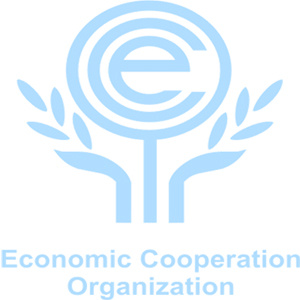ECO and Iran’s Anti-Sanction Policies

ECO can not have any economic advantages for its members.
The existence of ECO (Economic Cooperation Organization) hasn’t had any economic advantages and has not contributed to economic or political convergence among its members. Commentary by Saeed Leylaz.
ECO headed towards annihilation when its members increased from three to ten. If the organization were supposed to be one of economic function, similar to EU or ASEAN, it should have started with fewer members and limited economic objectives.
Looking at the EU experience, we see that at first it was the gathering of five European countries for cooperation on steel and oil-related issues. The cooperation has continued since 1960, and has undergone expansion, closeness and member increase.
But ECO increased its members from three to ten and tried to serve countries with glaring disparities. The organization wants to bring Afghanistan -with a destroyed economy- and industrial Turkey, wealthy Kazakhstan and Tadjkistan -with a backward agriculture and economy- all together. Definitely this is heading nowhere.
The main problem with ECO is the huge discrepancy among its members in technological, demographical, economic and political terms, something that makes agreement difficult, if not impossible. Even visa regualtions among members haven’t been determined after 15 years.
In fact, increasing members was a political decision made by ECO and triggered countdown for the organization’s death. With the huge disparity among its members, agreement -even on one issue or one commodity- is a matter of great doubt.
Iran’s Anti-sanction policies
ECO is not the only place for Iran to play a regional role. For years we have been investing in Africa and Latin America to attract support and counter United States sanctions. In Central Asia, this is followed via ECO. In Latin America it is pursued in the guise of anti-colonialistic and anti-imperialistic efforts or aides for reconstruction.
Iran’s general policy is to render US sanctions fruitless. Of course there have been achievements; however, we can’t expect a union to come out of this policy. While Iran vies for the leadership of ECO, it has to face Turkey as a rival. Turkey represents an alternative version of Islam and is closer to most ECO members in terms of language.
Most probably, ECO won’t have any economic results for Tehran and we can only be content with its political outcomes. ECO members have just as strong cooperation with countries outside ECO as they have with other ECO members. Iran’s economic ties with China are much stronger than its relations with any ECO member.
On the other hand, interrelation among ECO members suffers uneven distribution. Iran-Turkey economic ties within ECO framework is not comparable to any other case. The same is true for relations among Turkey, Kazakhstan and Azerbaijan. In fact, the relation between countries are not a result of their membership in this organzation, but an outcome of geopolitical and political connections. The existence of ECO (Economic Cooperation Organization) hasn’t had any economic advantage and has not helped to economic or political convergence among its members.

